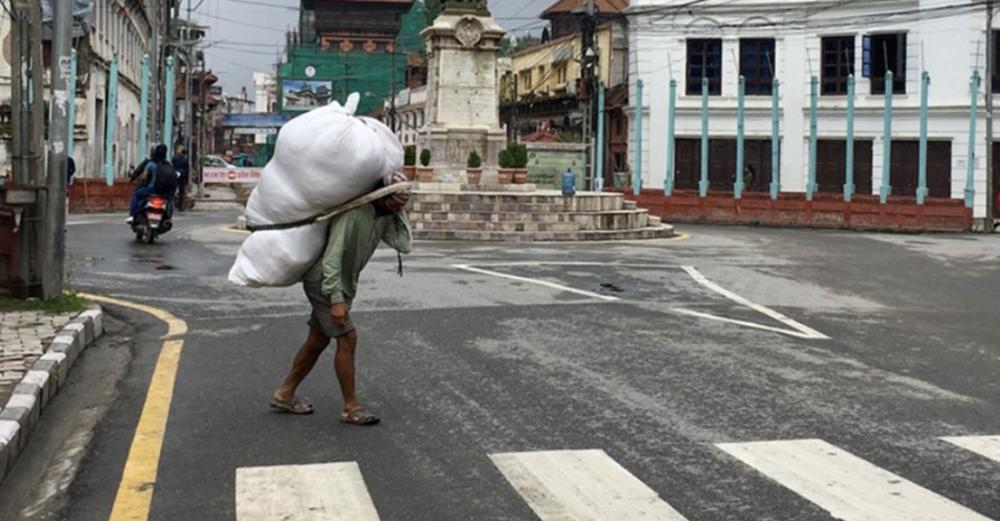Just Earth News | @justearthnews | 19 Oct 2020, 07:59 am Print
 Asia Pacific
Asia Pacific New York: More than half of the people living in Asia and the Pacific lack any social protection coverage, leaving populations vulnerable to ill-health, poverty, inequality and social exclusion, a new UN report has found.
The need for social protection safety nets has been further highlighted by the coronavirus pandemic, the UN Economic and Social Commission for Asia and the Pacific (ESCAP) and the UN International Labour Organization (ILO) said in a new report, launched on Thursday.
“Comprehensive social protection creates the foundation for healthy societies and vibrant economies,” Armida Salsiah Alisjahbana, Executive Secretary of ESCAP, said in a news release, on Thursday, announcing the findings.
“The COVID-19 pandemic has brought this imperative into sharp focus, by demonstrating the stabilizing effect well-functioning social protection systems have and how their absence exacerbates inequality and poverty,” she added.
According to the report, The Protection We Want: Social Outlook for Asia and the Pacific, the pandemic has created an “opportunity” to strengthen social protection systems for the future.
The economic and employment shock countries are facing due to pandemic means that social protection will remain a critical policy tool in the recovery, it added, underscoring that social protection programmes should form an integral component of any recovery plans.
Underinvestment
Excluding health, many countries in the region spend less than 2 per cent of their gross domestic product (GDP) on social protection, a “stark contrast” from the global average of 11 per cent, said the report.
Across the region, about 46 per cent of the population is protected in at least one area of social protection, with South East and South Asia subregions lagging with 33 per cent and 24 per cent, respectively.
In many countries, there are no schemes for numerous social protection contingencies, and responsibility for provisions such as maternity, sickness, and employment injury benefits, falling on employers.
“These arrangements can create perverse incentives for employers. For example, employer-liability arrangements for maternity benefits can lead to discrimination against women of reproductive age,” warned the report.
Informal employment
Alongside underinvestment in social protection schemes, another key reason for the coverage gap is high prevalence of informal employment in the region, representing close to 70 per cent of all workers, according to the report.
Though national and subregional differences exist, informal employment prevails in both agricultural and non-agricultural sectors, such as construction, wholesale and retail trade, accommodation, and restaurants, the report added. Women are particularly impacted as they are most often engaged in the informal economy, working in more vulnerable jobs.
The COVID-19 pandemic has exposed the precarious situation of both women and men in the informal economy, explained Chihoko Asada-Miyakawa, Regional Director for Asia and the Pacific at ILO.
“There is a clear need for further investment in public social protection systems if we are to avoid the stagnation of social and economic progress made across the region in recent decades,” she said.
Recommendations
The report identified seven key actions governments in the region can take to improve social protection.
These include: integrating social protection as a core strategy for socio-economic development; political commitment and stepping up investments in social protection for all; closing existing social protection coverage gaps; promoting transition from the informal to the formal economy; and embedding social dialogue at all steps from design and implementation to follow-up and evaluation.
The report also calls for strengthening gender-responsiveness of social protection systems by ensuring that schemes address the specific vulnerabilities faced by women, men, girls, and boys; and leveraging new technologies to enhance the effectiveness, efficiency, and accessibility of social protection.
By stepping up their commitments to universal social protection, countries in Asia and the Pacific would “also be taking a critical step towards achieving the Sustainable Development Goals (SDGs), while being better prepared to deal with current and emerging challenges,” added the report.
- BJP wins a seat in Bangladesh — But not the one you think!
- Meet Shabana Mahmood: Could she take over as UK’s first Pakistani-origin Muslim PM?
- Dalai Lama's Office breaks silence on Epstein claims
- Russia says suspect in shooting of GRU Deputy detained in Dubai
- Mystery gunman strikes: Top Russian General shot in dramatic Moscow incident





-1763561110.jpg)
